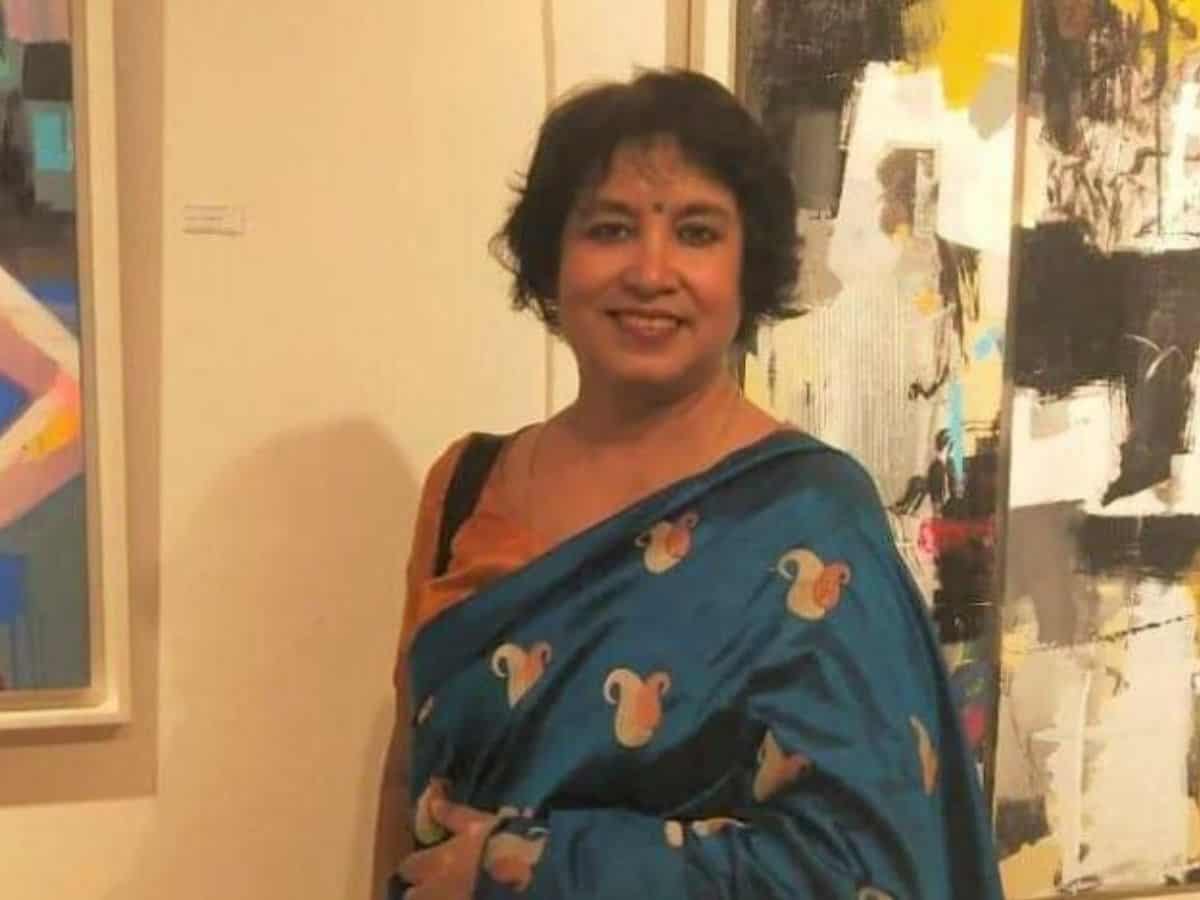
New Delhi: Author Taslima Nasreen against whom several fatwas have been issued for her “anti-Islamic remarks” says that she is extremely disturbed after a religious leader, addressing a rally of thousands in Pakistan yesterday called for her to be assassinated.
Known for her writings on the oppression of women and criticism of religion, several of her works are banned in Bangladesh, the country of her origin. She has been living in exile since 1994. After living for more than 10 years in Europe and the US, she moved to India in 2004.
“While I have had several fatwas issued against me in the past, this is the first time that someone has announced my name in front of such a huge gathering and demanded that I be killed. Who will not be disturbed by this? Look at my Twitter handle, there are so many comments saying that after Rushdie, it is now my turn. I am still confused about whether to delete or retain those tweets. Maybe I should not, if something happens to me, people should get to know… Of course, I do have protection, but anyone will feel insecure after what happened to Rushdie, no?” she tells IANS.
Talk to her about the peculiar silence of moderate Muslims whenever violence manifests in the name of Islam, and she asserts that have a very “different character”.
“While some progressive Muslims are against violence, they are afraid to speak as that might put their lives in danger. But then, silence is of two kinds — one that emerges from fear — and the other that comes from supporting them without speaking a word.”
Stressing that while many religions have slowly evolved, changed with the times and started considering man and women equal, one can still face dire consequences if Islam is criticised, Nasreen adds: “If I scrutinise Islam, rest assured, I will be attacked. Sadly, it has been exempted from criticism. Let us not forget that Islamic rule has been used for political purposes as well.
“Instead of laws based on equality and justice, they have rules against them. Children are being brainwashed to become fundamentalists and terrorists. So how do you expect change?” she concludes.



